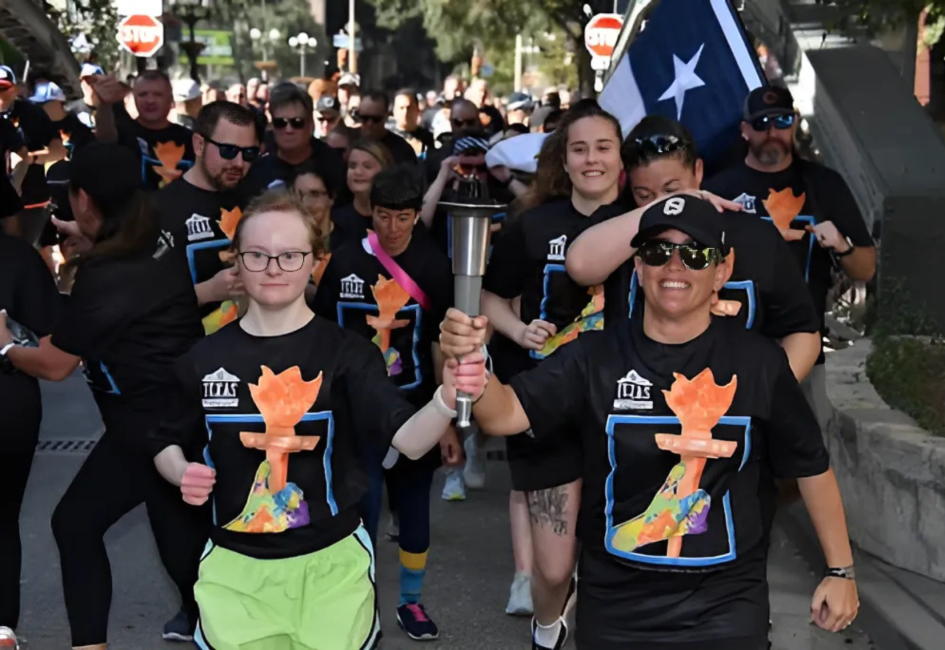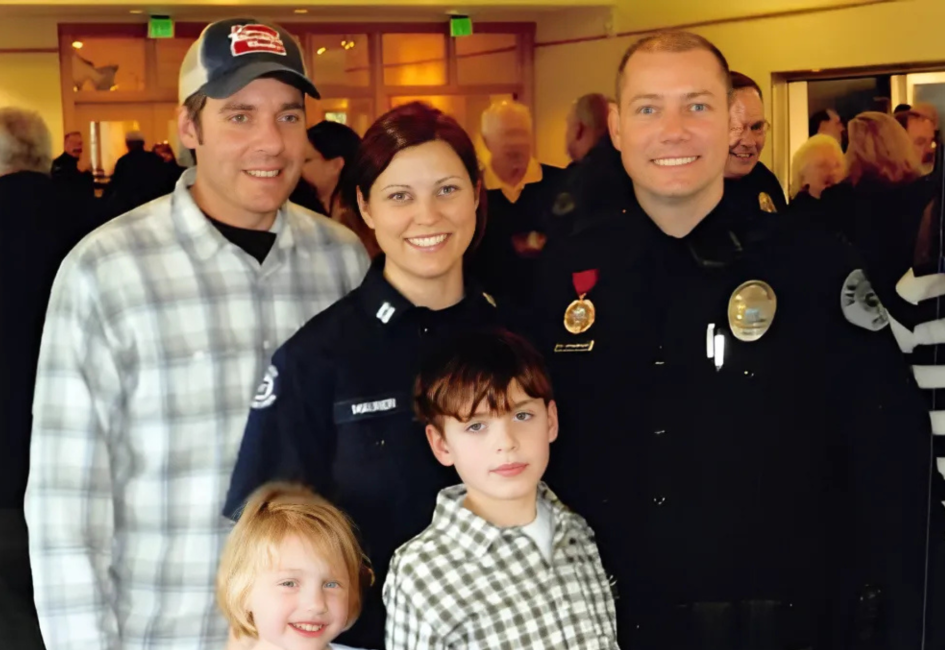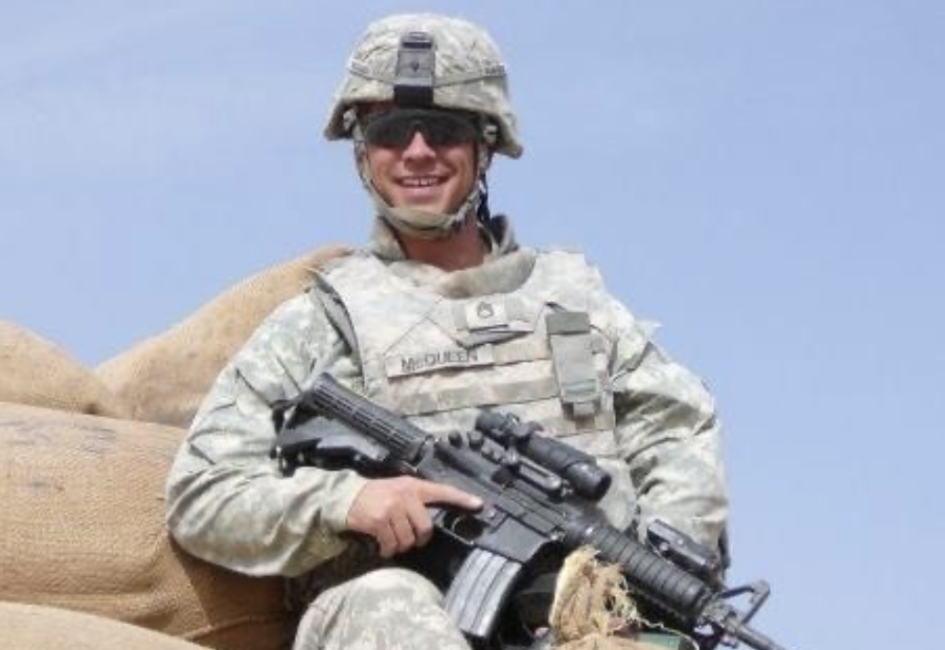Camille Effler never meant to make military history. She just kept saying yes to what felt right.
It started in veterinary school when a classmate mentioned a competitive Army scholarship. Camille wasn’t from a traditional military background, though her grandmother had served in WWII, deploying to Italy and Africa as one of the few women in uniform at the time. Still, the idea of blending veterinary medicine, public service, and global impact struck a chord. She applied for the scholarship, not realizing how selective the program was. And she got it.
In 2010, she entered active duty. Within two years, she was embedded in an Afghan village with a Special Forces team, part of one of the earliest cohorts of the U.S. Army’s Cultural Support Team (CST) program, an experimental initiative that placed elite women alongside male operators to engage directly with Afghan women and families. Camille was in the field, living among the community, helping to stabilize villages and bridge impossible cultural divides.
“It was one of the most meaningful things I’ve ever done,” she said. “I wasn’t there to kick in doors. I was there to listen, to help, to build.”
That’s been the through-line of Camille’s entire career: a drive to find meaningful, people-centered work — even in roles not originally designed with that focus. After her CST deployment, she became the first active-duty veterinarian assigned to Naval Special Warfare Development Group, widely regarded as the most elite unit within the Navy SEALs and one of the top special operations forces in the U.S. military. She cared for military working dogs, flew in helicopters, trained in the jungle, and became a trusted presence in spaces few outside the teams ever see.
Then came Johns Hopkins. A master’s degree in public health. Research into sustainable food systems. A global health leadership role at U.S. Indo-Pacific Command, where she became branch chief for the entire region. She built international partnerships. She traveled widely. She climbed, and climbed, and climbed — and then, finally, she paused.
Somewhere along the way, Camille realized the system she had worked so hard to navigate was starting to narrow. The military’s new HR models made it harder to shape your own path. For years, she thrived in a more flexible environment that allowed her to stretch her skills and step into unique roles. But with that flexibility fading, she knew it was time. In 2023, she left active duty and joined the reserves.
By then, she’d already been through Warrior PATHH at the Boulder Crest Foundation.
She hadn’t planned to go. A fellow CST veteran invited her, and she showed up thinking it was a casual retreat. I didn’t even ask questions,” Camille laughed. “I just signed up.”
But what she found at Boulder Crest was far more than she expected. Warrior PATHH asked her not what she had achieved, but what she had ignored. What parts of herself had been silenced in the pursuit of excellence? What narratives had she accepted as truth?
“I’ve always been a high performer,” she said. “But that came with perfectionism, anxiety, and constant negative self-talk. I thought perfectionism helped me succeed. But Warrior PATHH showed me how much it was costing me.”
That week changed her life in quiet, surprising ways. She stopped biting her nails — a lifelong habit rooted in nervous energy. She began practicing transcendental meditation. She developed language for boundaries, and gave herself permission to advocate for what she needed. She learned to stop asking, “Am I doing enough?” and started asking, “Is this true to me?”
That clarity didn’t just stay at Boulder Crest. It followed her to California, where she now lives with her husband and young son. Camille is currently pursuing a PhD at Stanford in the School of Sustainability, with a research focus on equitable food systems and women’s roles in small-scale fisheries, especially in Indonesia. She plans to return there for fieldwork soon, balancing her research with motherhood and her continued service in the Army Reserve.
It’s not easy. It never was. But she’s doing it with eyes wide open, no longer trying to prove her worth through performance alone.
“I used to feel like I always had to prove myself — like I had to earn my place by saying yes to everything. After my experience at Boulder Crest, I’m learning to ask for what I need and to be okay with that. It’s not about doing it all. It’s about doing what’s true to me.”
Camille Effler redefined what it meant to serve. She proved that authenticity can coexist with ambition, and that the most powerful leaders are the ones who refuse to disappear into the structure. And by sharing her own Warrior PATHH experience, Camille opened the door for others to consider their own journey toward Posttraumatic Growth (PTG). One of them was her fellow Army Reservist Jeremy Fletcher, who attended the program because of her influence, and now brings those lessons into his own healing and work. Once again, Camille wasn’t just blazing her own path. She was lighting the way for others.
She stayed true to herself. And in doing so, she showed others how to do the same.
If you’re an Active-duty Service Member, Veteran, or First Responder seeking a path toward Posttraumatic Growth, learn more about Boulder Crest’s transformative programs here.
Give strength & hope to those who serve
Your support powers life-changing programs offered at no charge to veterans, military, first responders, and their families. With your help, our Warriors won't just survive — they'll thrive.



